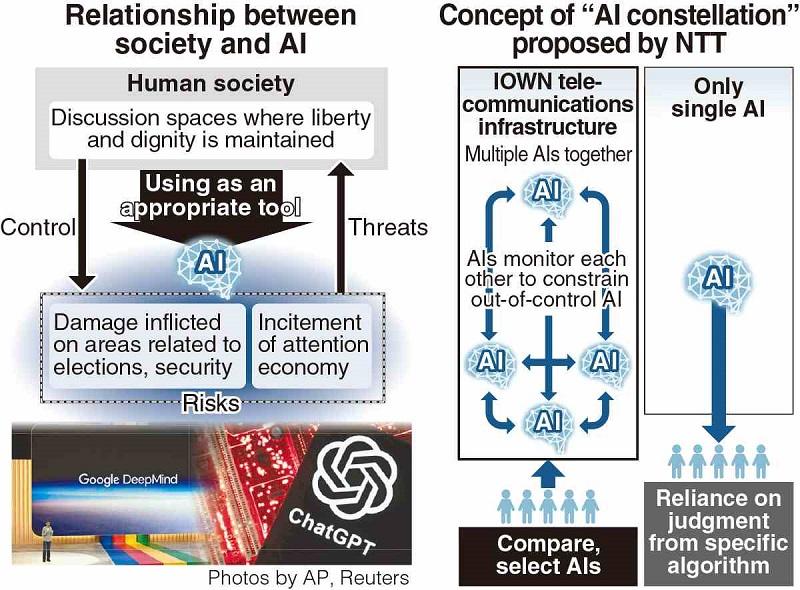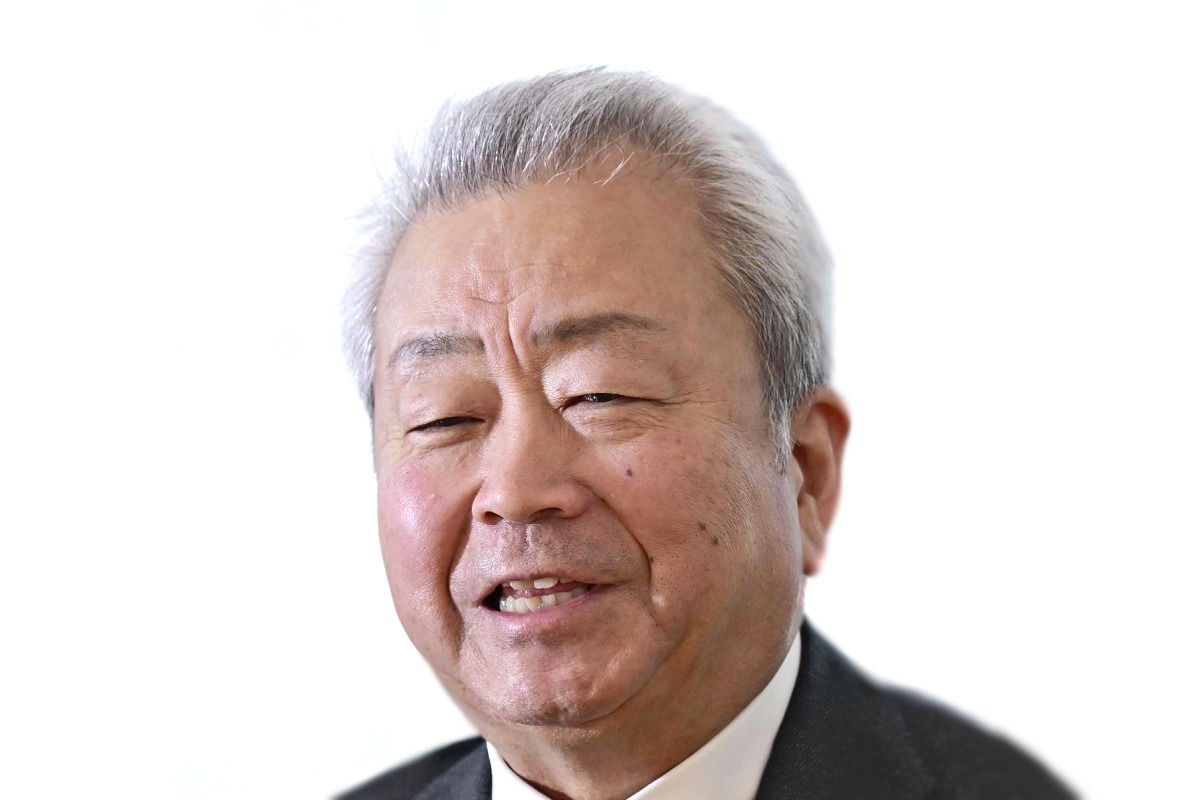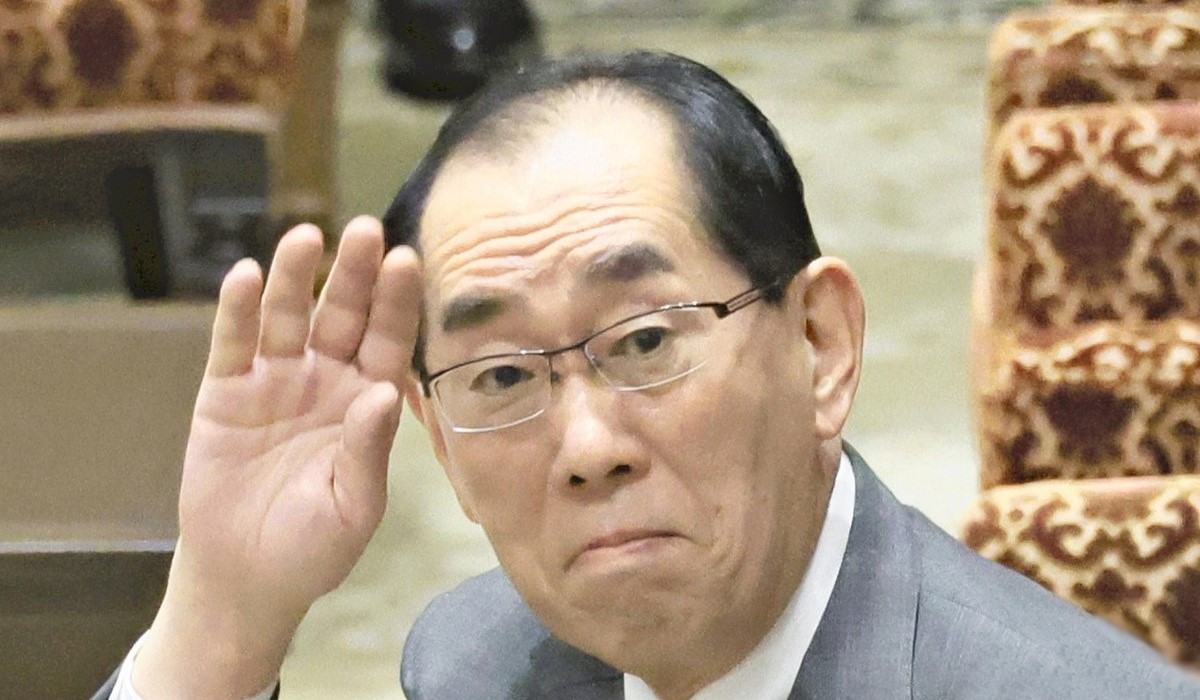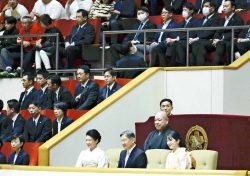Joint Proposal / Proper Controls Essential for Generative AI; Joint Proposal Discusses Measures to Strike Balance Between Regulation, Development

A smartphone with a displayed ChatGPT logo is placed on a computer motherboard in this illustration taken February 23, 2023.
12:00 JST, April 9, 2024
The “Joint Proposal on Shaping Generative AI,” compiled by The Yomiuri Shimbun and NTT Corp., is based on their acknowledgement that appropriate control of artificial intelligence (AI) must be implemented when utilizing the technology to assist the future development of society.
There is an urgent need to consider both institutional and technological measures in order to tackle the social issues that AI highlights while protecting spaces for discussion.
Need for balance
The joint proposal sounds the alarm over generative AI, saying that trust in society as a whole may be damaged if the technology is left unchecked. At the same time, the proposal presents the view that AI itself is already indispensable to society.
It calls for discipline, including legal regulation, saying that “If AI technology is dismissed as a whole as untrustworthy due to out-of-control generative AI, humanity’s productivity may decline.” The importance of finding ways for humans to control AI is emphasized, with a call for measures to be realized to make the technology a “tool” to help society.
“For areas that could be negatively impacted, strong regulations are needed, while there is also a need to promote the use of generative AI in areas related to strengthening industrial competitiveness,” said NTT Chairman Jun Sawada. The collaboration between a news organization, which can be greatly affected by AI, and NTT, a company engaged in the field of advanced technology, is significant as a part of efforts to bring together the knowledge of both parties to strike an appropriate balance between regulations and the utilization and development of AI.
Attention economy
The threat of generative AI has become a reality in elections and security — spheres where the proposal calls for strong legal regulations.
Last November, a fake video of Prime Minister Fumio Kishida went viral. The video showed Kishida repeatedly expressing profanity on a screen that mimicked a news image. The video was easily identifiable as a fake because the target was a high-profile figure being shown saying things that were completely out of character. A senior Liberal Democratic Party member expressed concern, saying that if a candidate with no name recognition was targeted during an election, they would not stand a chance.
In March, a Russian TV station broadcast a fake video in which a man who appears to be a Ukrainian official admitted Ukraine’s involvement in a terrorist attack. AI could also be used in Japan to stir up hatred toward other countries.
The proposal expresses concern over an “attention economy” which uses radicalized information to draw attention and warns of the risk of worsening social unrest.
In January 2023 in Brazil, a crowd of people attacked Congress apparently because they believed information about possible fraud in the presidential election. “Since AI can predict personal attributes and vulnerabilities, and share information based on them, there will be a greater possibility of manipulation in decision-making. Surrounded by particular information, some people may take extreme actions,” said Keio University Prof. Tatsuhiko Yamamoto.
Data policy
The proposal cites the need to “develop a robust, strategic and systematic data policy,” which is raised as a long-term challenge and is based on the example of the European Union.
The European Union’s AI legislation, consisting of the EU General Data Protection Regulation (GDPR), the Digital Services Act, and the Artificial Intelligence Act, is linked together to guarantee fundamental rights, such as personal data protection, as defined by the EU’s Charter of Fundamental Rights. The GDPR guarantees a person’s right not to be subject to a decision, such as for receiving a loan, based solely on an AI assessment.
As data is food that AI learns from, nationwide discussions are essential to consider how Japanese society should deal with data as part of efforts to establish the appropriate use and regulation of generative AI.

Connecting multiple AIs
The proposal emphasizes the need to create an environment to “ensure that there are multiple AIs of various kinds and of equal rank” in order to utilize generative AI and ensure healthy spaces for discussion.
The goal is to achieve a state in which humans can independently compare multiple AIs with different algorithms and have people select among them so their thinking will not be dominated by the worldview presented by specific AIs.
The key to make such a situation technologically possible is an “AI constellation” initiative that uses IOWN (Innovative Optical and Wireless Network), a next-generation telecommunications infrastructure being developed by NTT. IOWN is cutting-edge technology that allows high-speed, large-capacity communication using optical technology.
By operating multiple AIs together like a constellation, the AIs can learn from and monitor each other. The technology is expected to curb the spread of AI-specific phenomena such as “hallucinations” — in which AI, in response to questions, gives answers as if they were facts on matters that do not exist — and biased judgments.
The proposal cites adverse impacts of AI that pose threats to society and notes that “These solutions cannot be maintained by laws alone, but rather, they also require measures such as Originator Profile (OP).” OP is a technology used to explicitly indicate sources of online information.
OP assigns a digitalized identifier to online news articles and advertisements, making it easier for internet users to confirm the reliability of the information. It has been pointed out that OP is useful as a countermeasure against disinformation, and the Japanese government plans to conduct a public demonstration of OP in areas affected by disasters, based on cases of disinformation and misinformation that spread on social media during the Noto Peninsula Earthquake.
“In order to protect healthy spaces for discussion, technology like OP is necessary to identify the reliability of information at a glance,” said Tatsuya Kurosaka, the secretary general of the Originator Profile Collaborative Innovation Partnership, an organization promoting the development of OP technology.
Top Articles in Society
-

JAL, ANA Cancel Flights During 3-day Holiday Weekend due to Blizzard
-

Man Infected with Measles May Have Come in Contact with Many People in Tokyo, Went to Store, Restaurant Around When Symptoms Emerged
-

Australian Woman Dies After Mishap on Ski Lift in Nagano Prefecture
-

Record-Breaking Snow Cripples Public Transport in Hokkaido; 7,000 People Stay Overnight at New Chitose Airport
-

Foreign Snowboarder in Serious Condition After Hanging in Midair from Chairlift in Nagano Prefecture
JN ACCESS RANKING
-

Univ. in Japan, Tokyo-Based Startup to Develop Satellite for Disaster Prevention Measures, Bears
-

JAL, ANA Cancel Flights During 3-day Holiday Weekend due to Blizzard
-

Japan Institute to Use Domestic Commercial Optical Lattice Clock to Set Japan Standard Time
-

China Eyes Rare Earth Foothold in Malaysia to Maintain Dominance, Counter Japan, U.S.
-

Japan, Qatar Ministers Agree on Need for Stable Energy Supplies; Motegi, Qatari Prime Minister Al-Thani Affirm Commitment to Cooperation
























